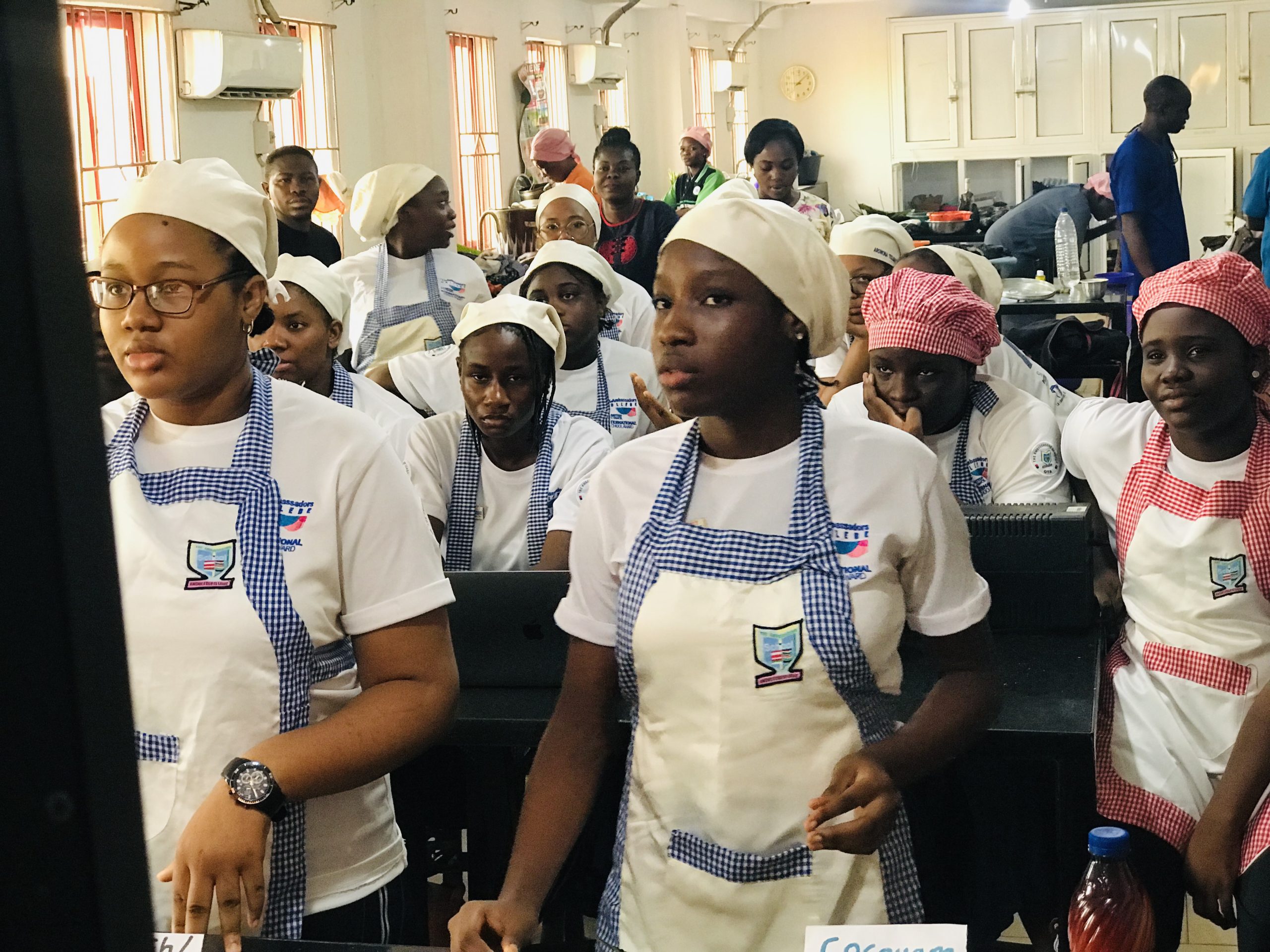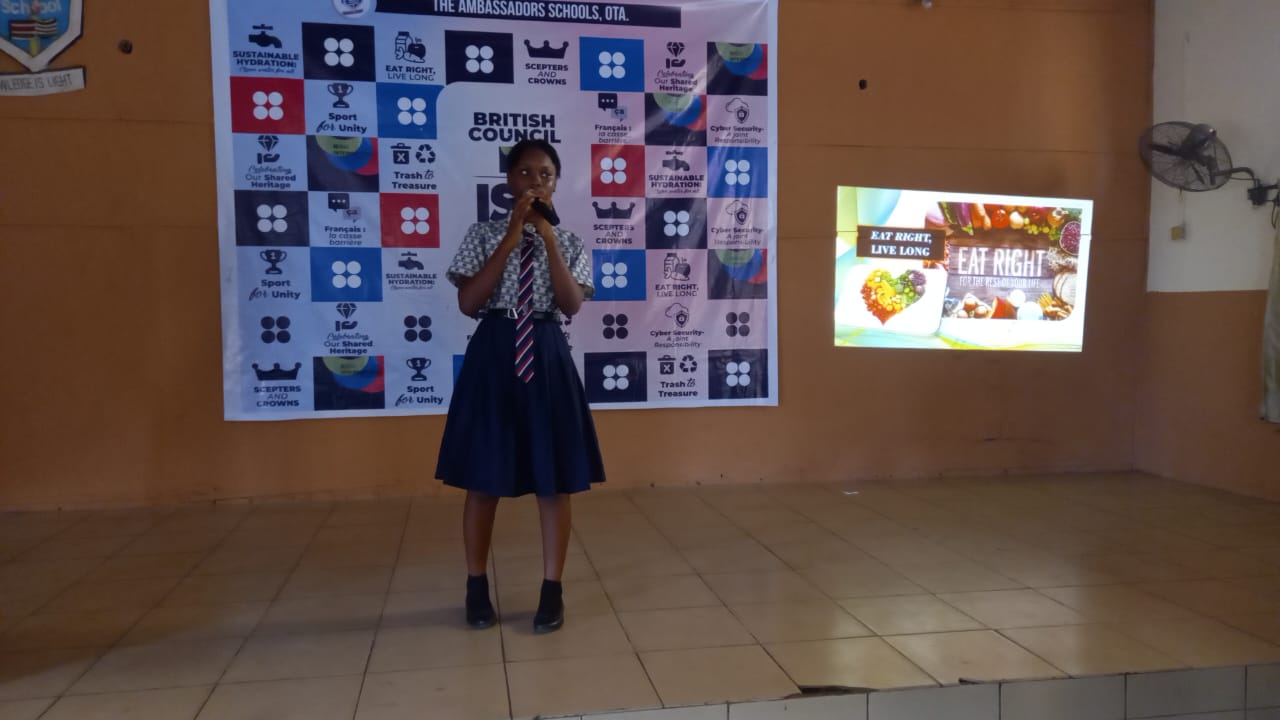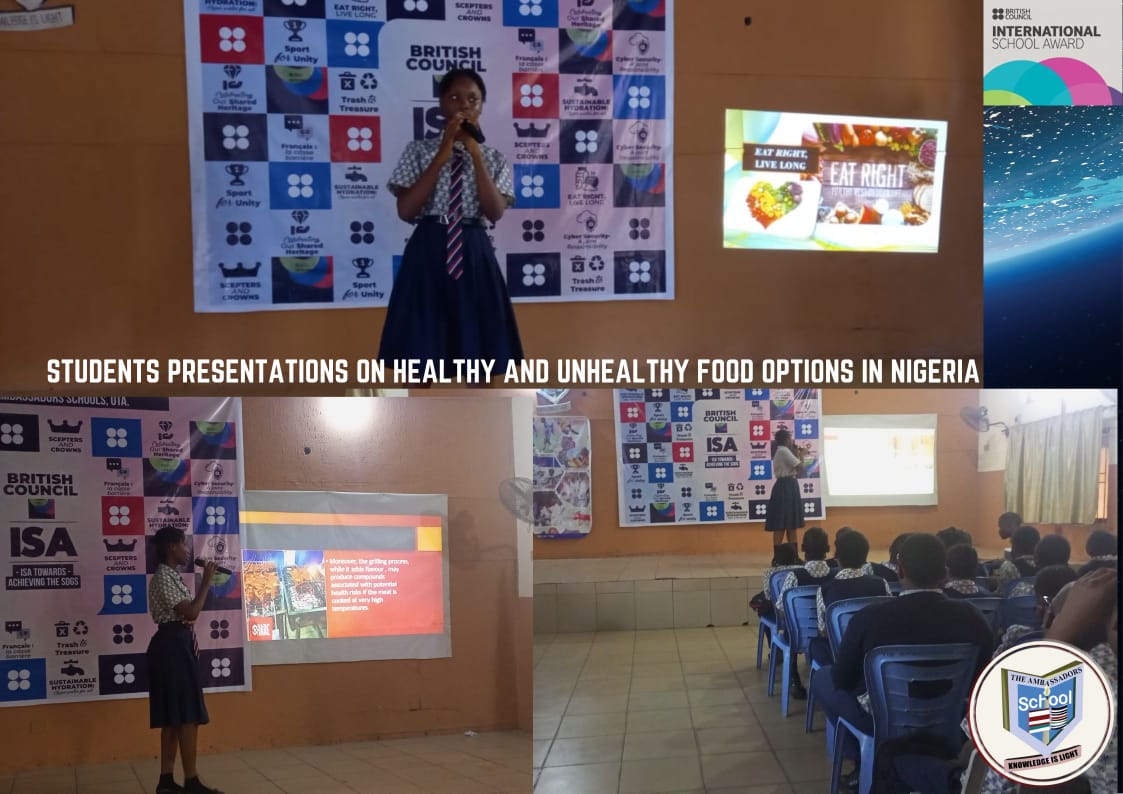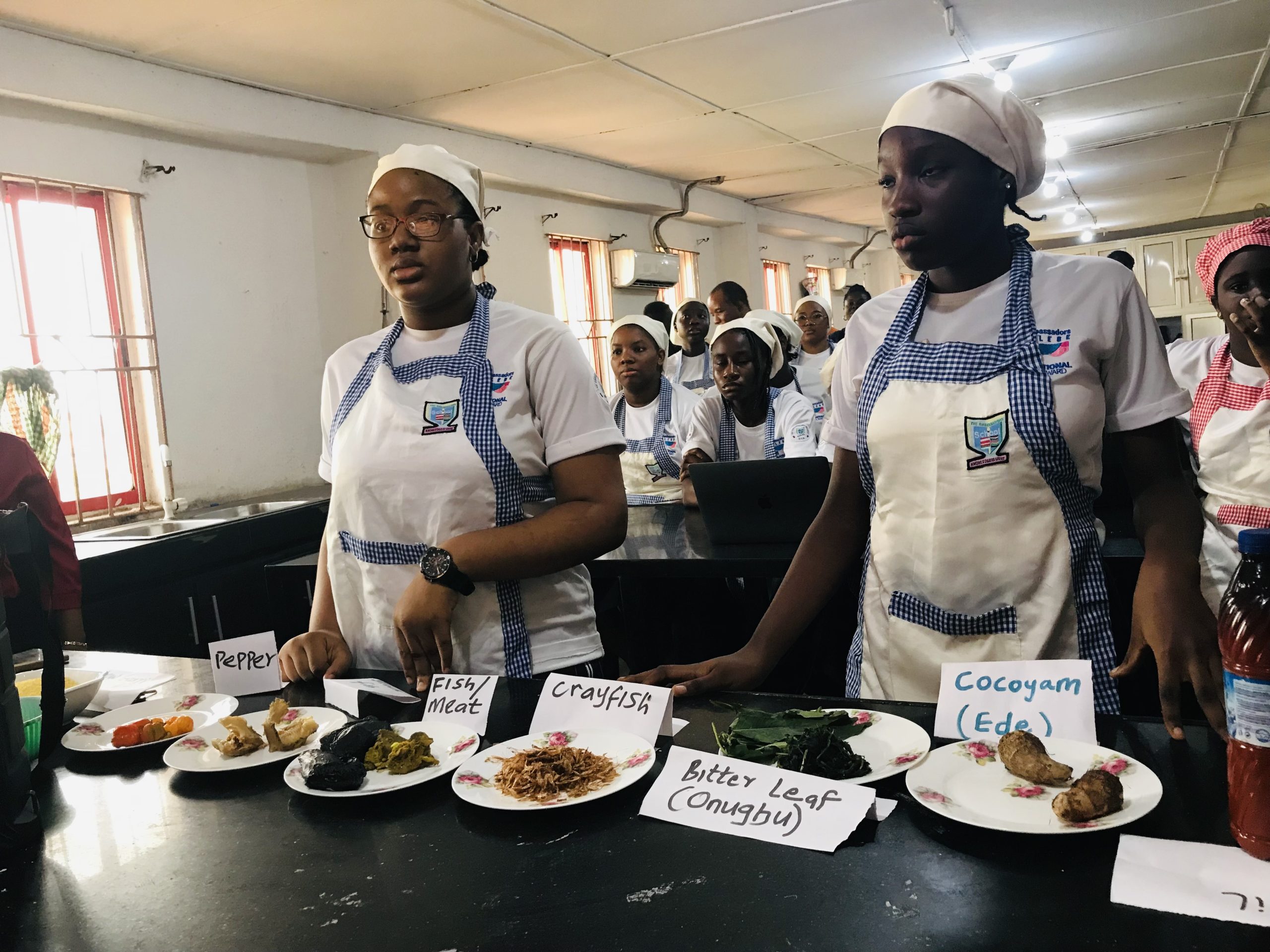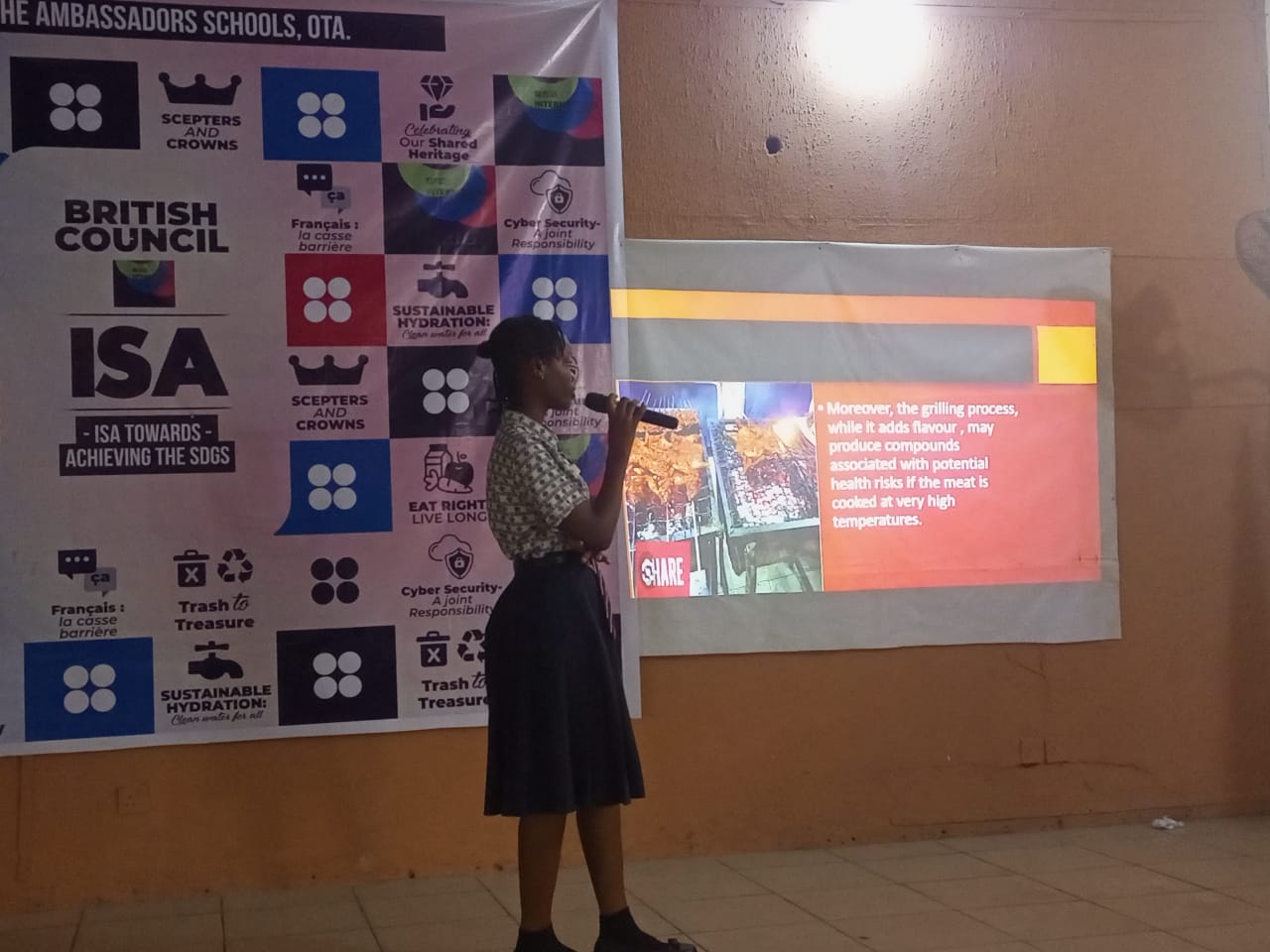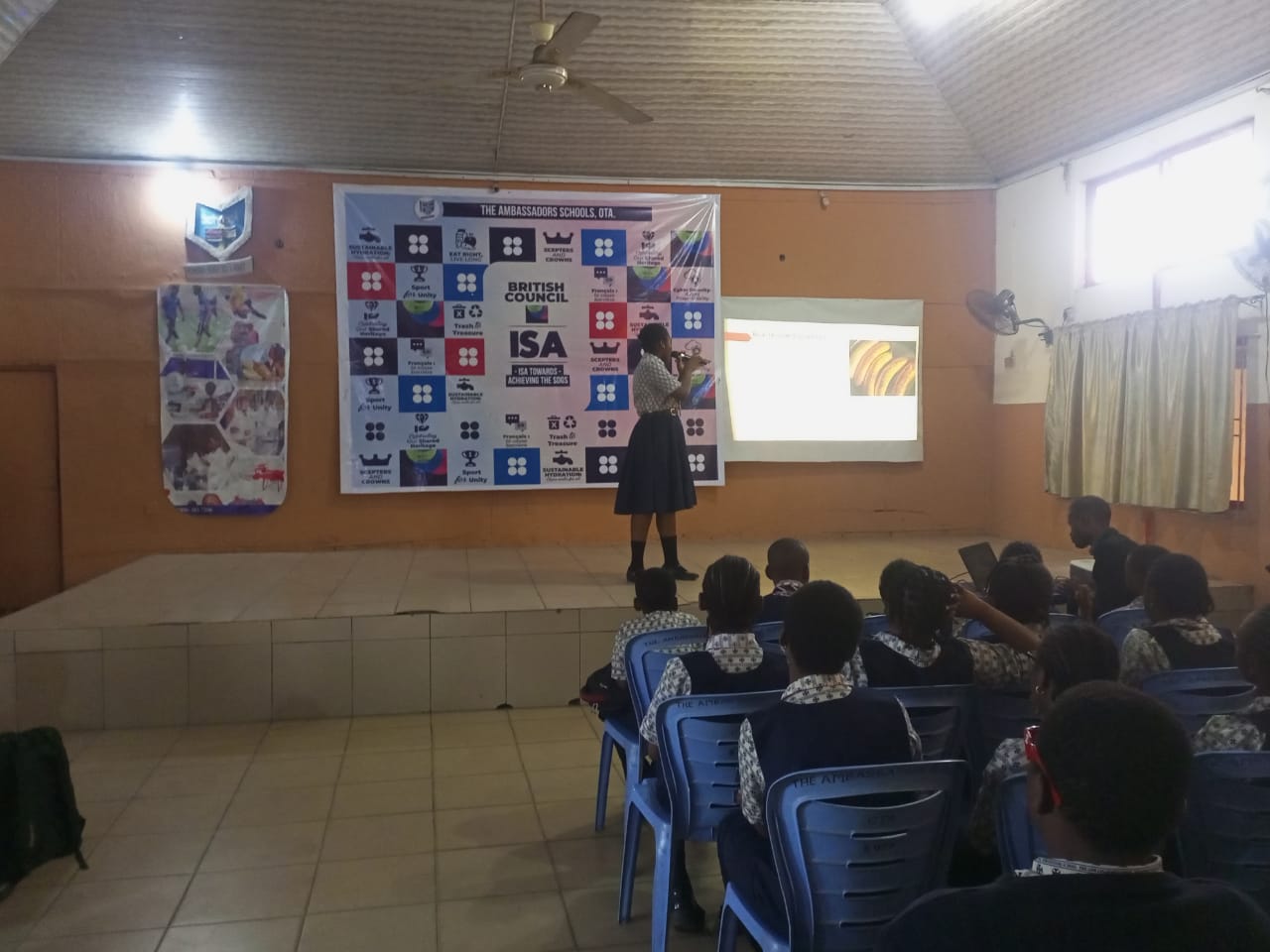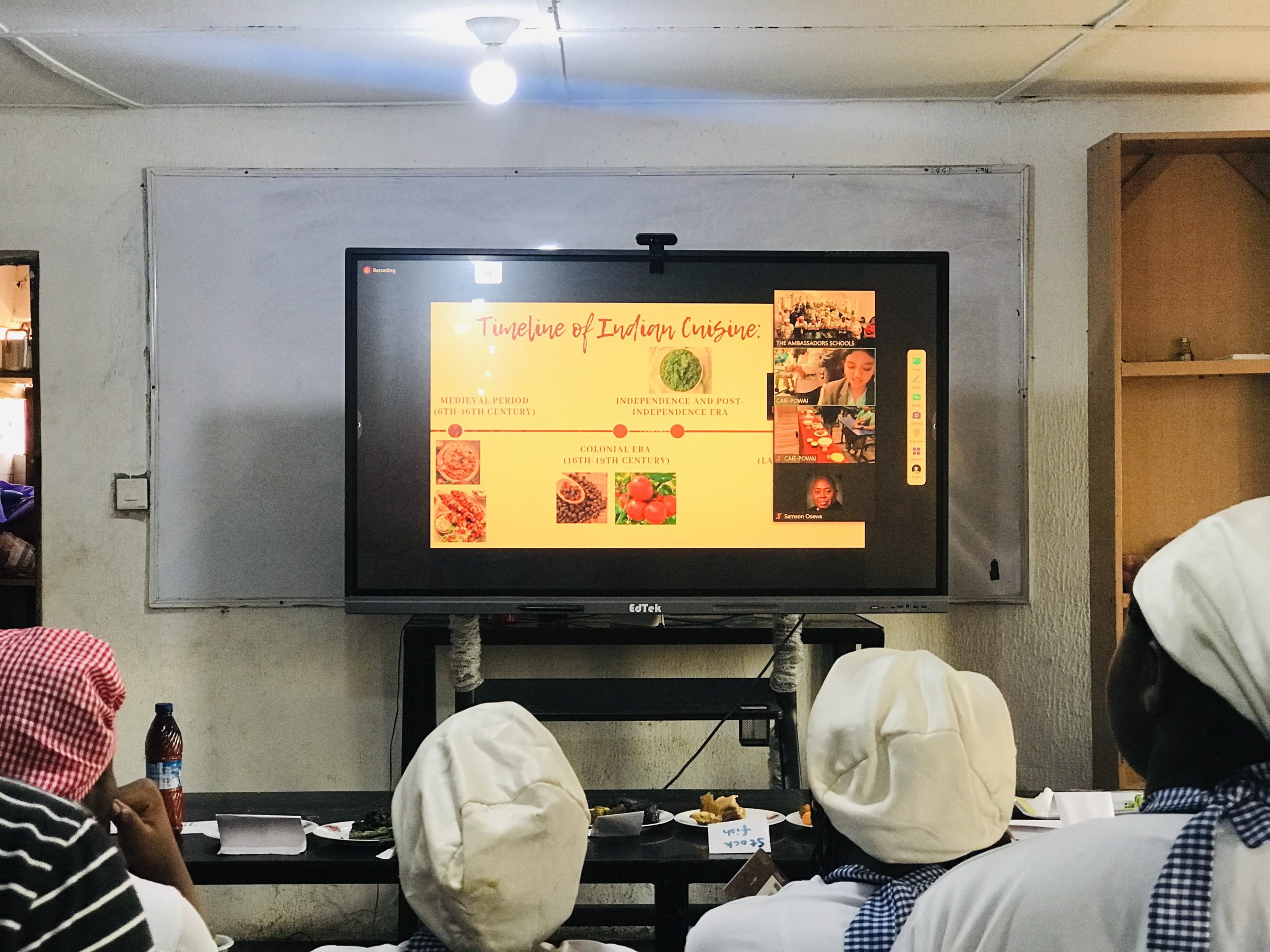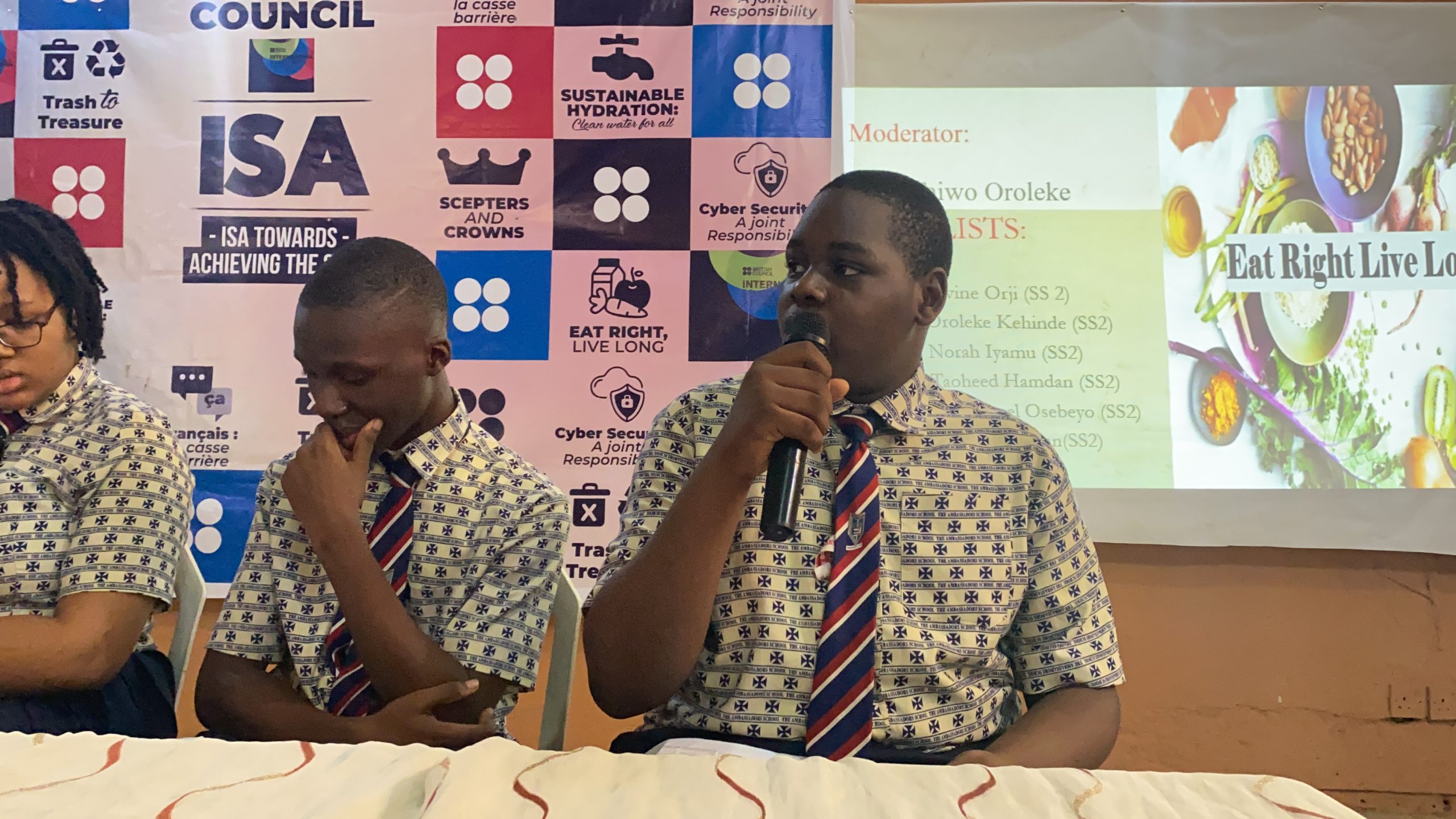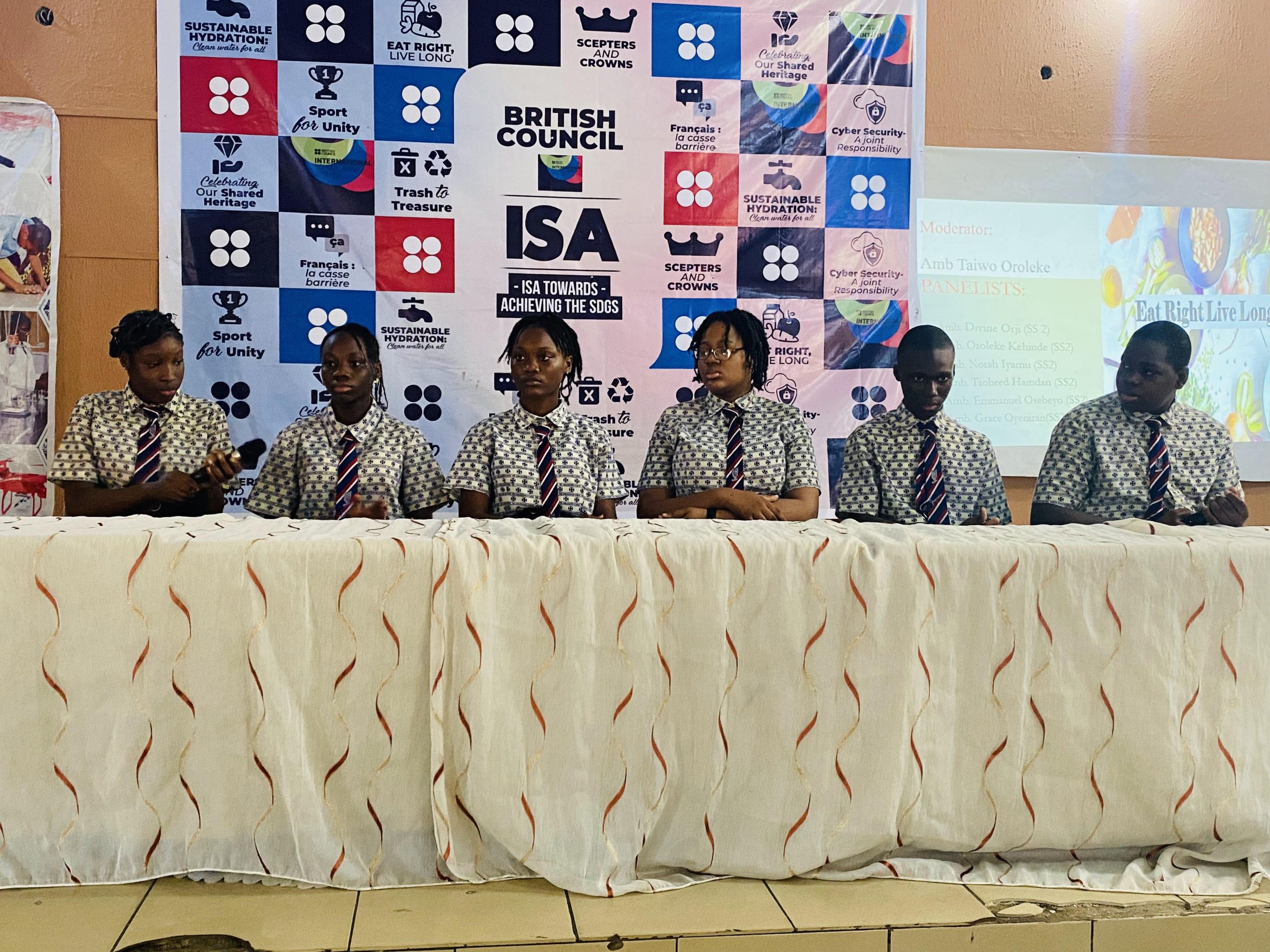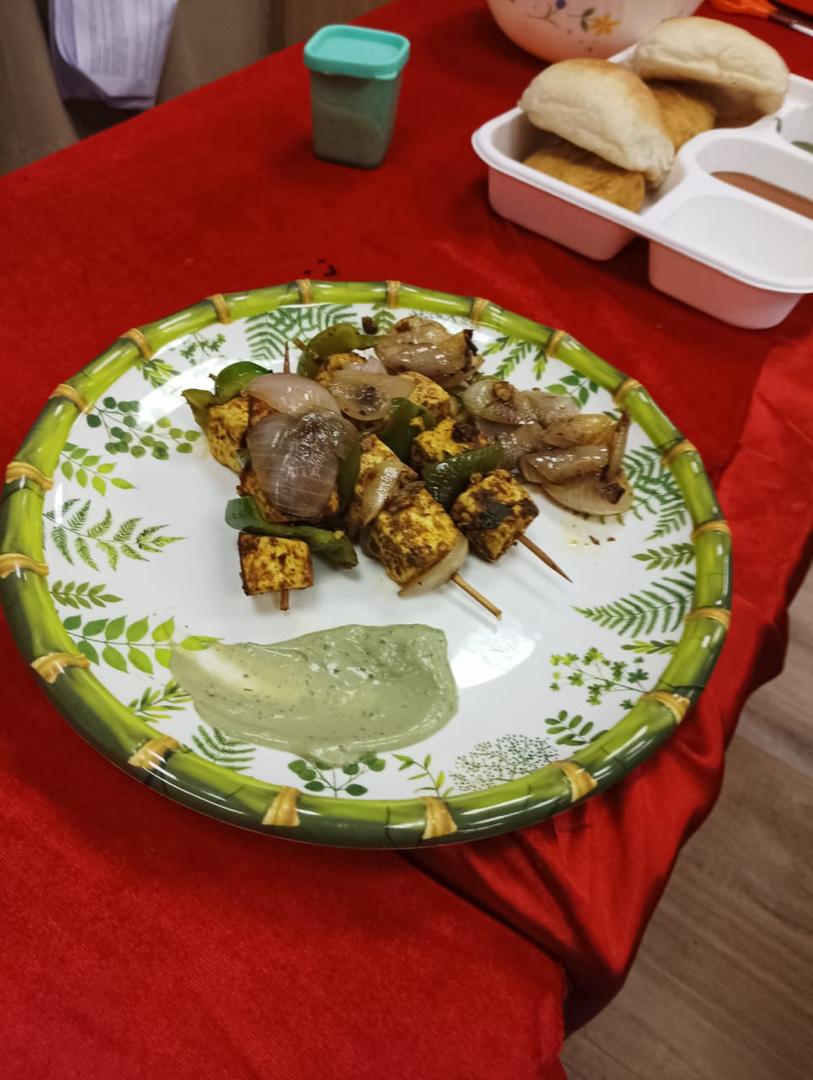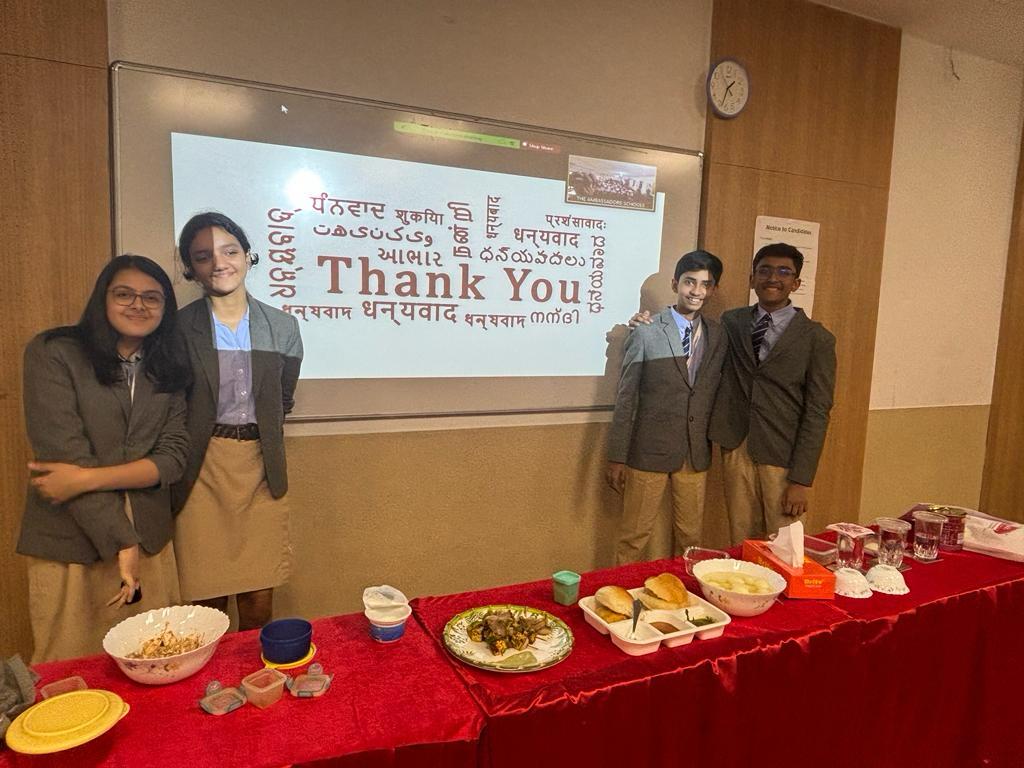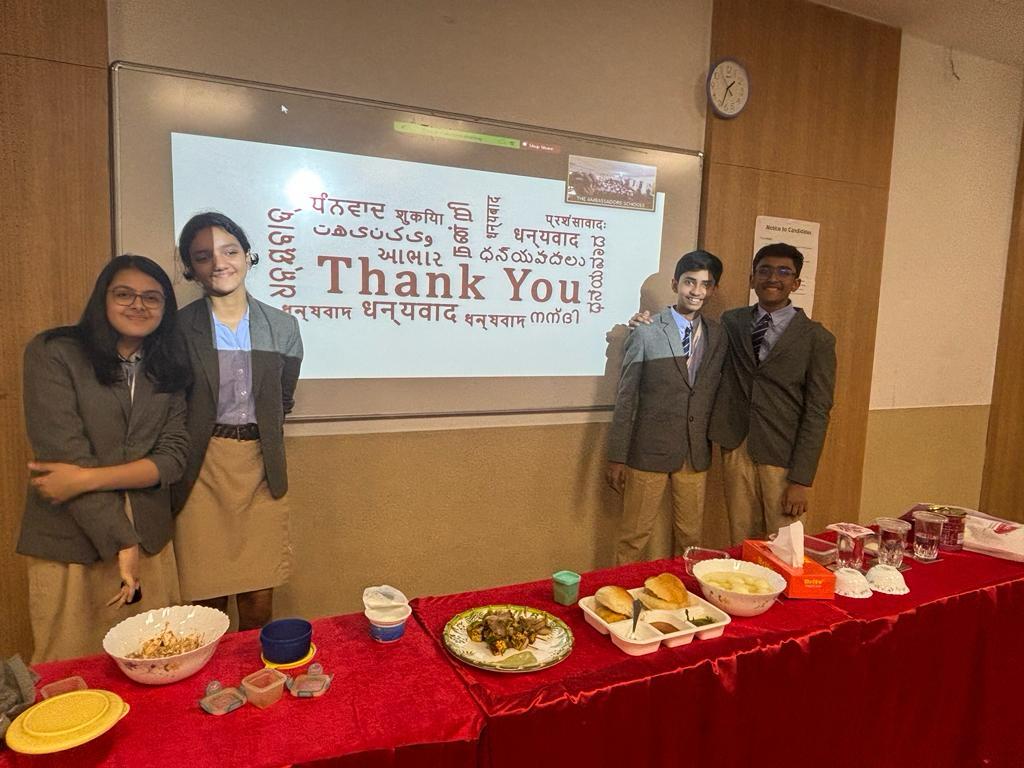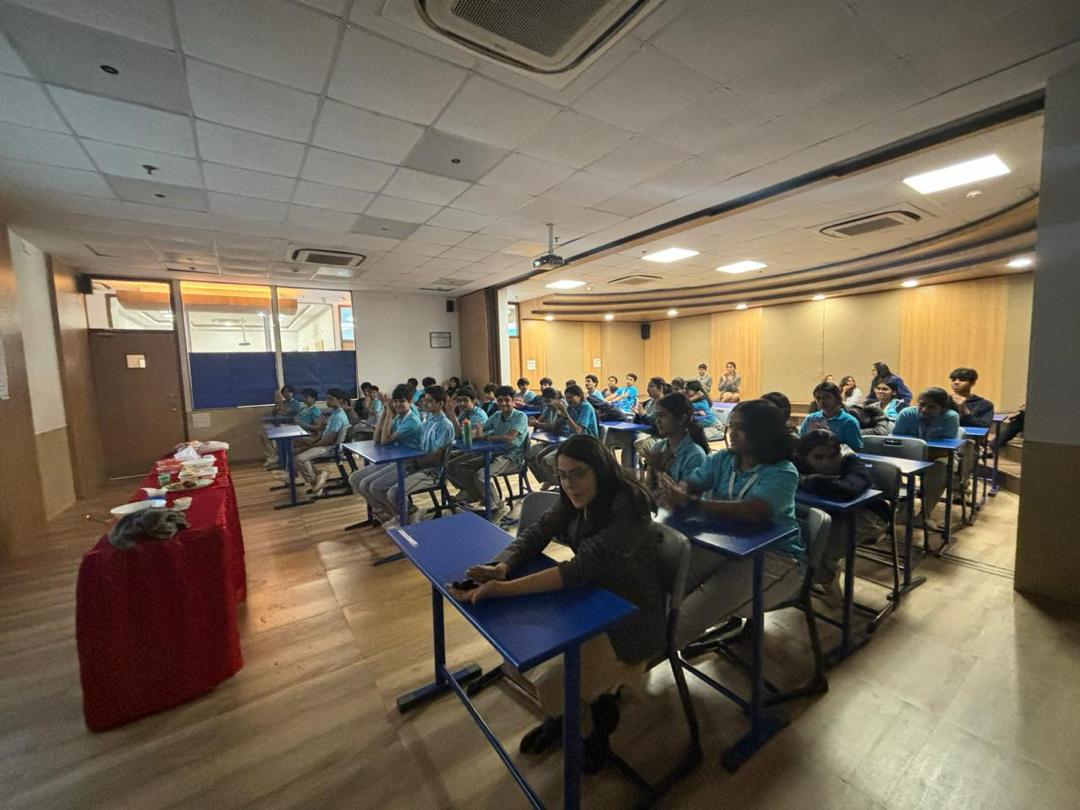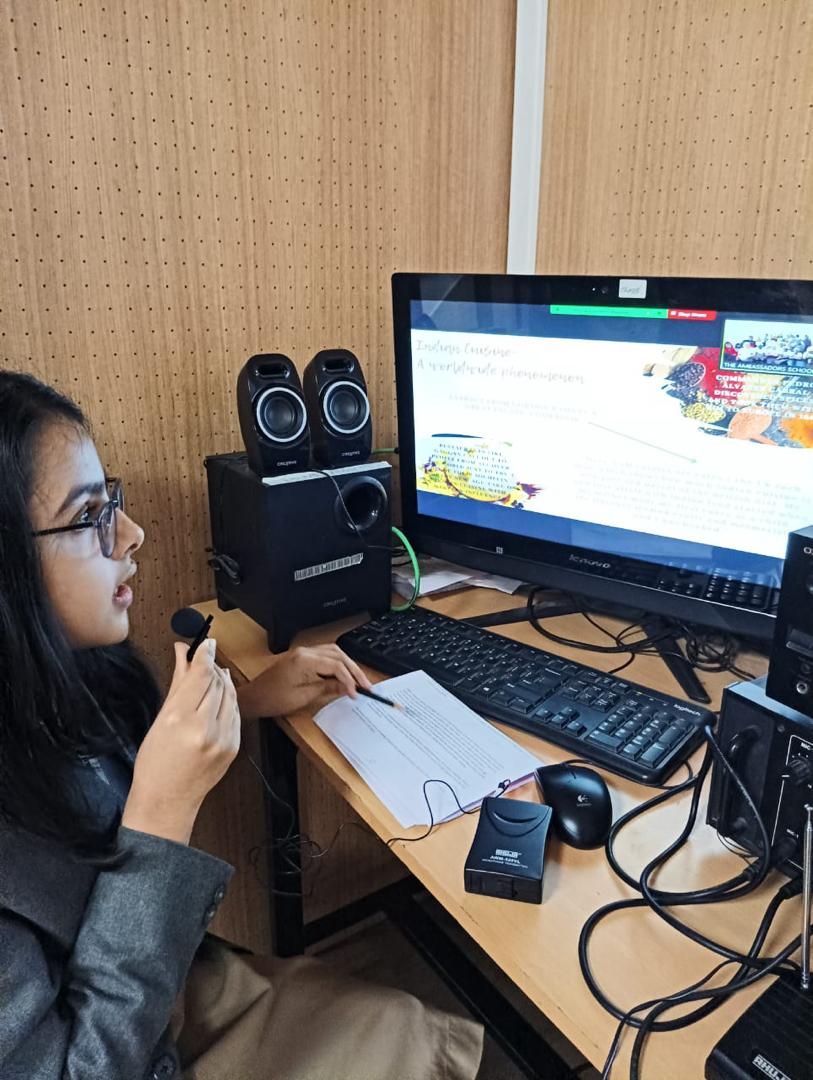Eat Right, Live Long (Collaborative).
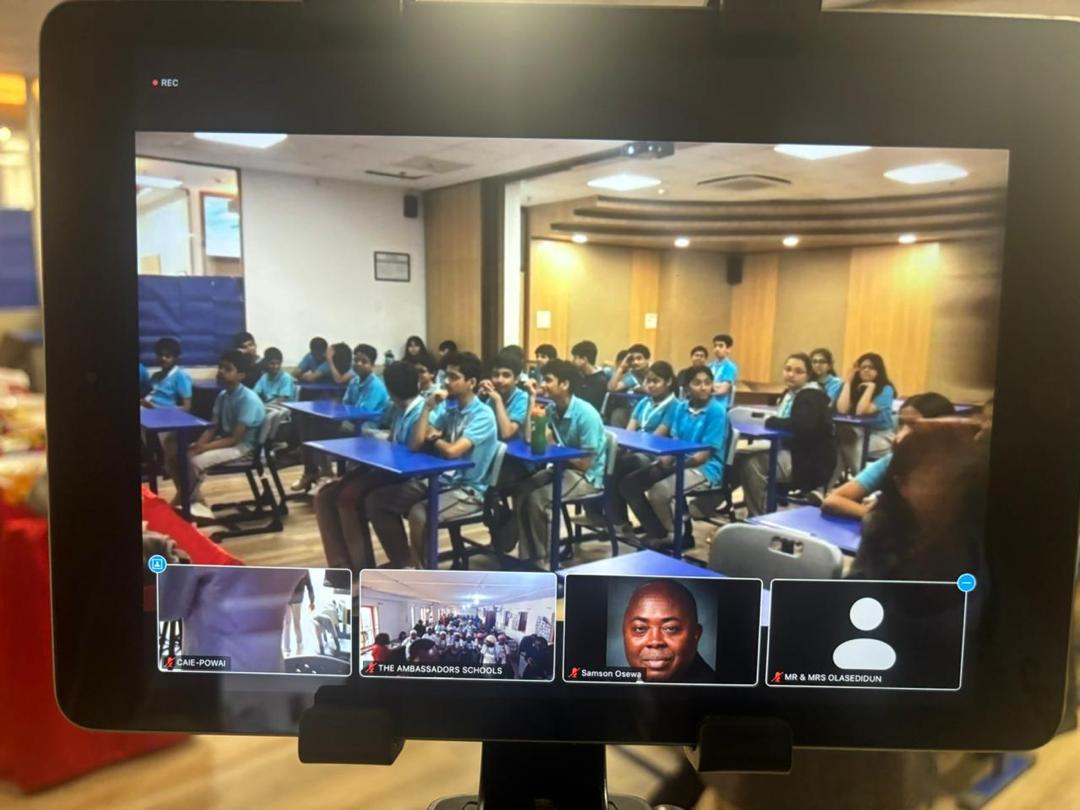
Zoom session on promoting healthy eating habits with our international collaborator-PODAR int'l school, India
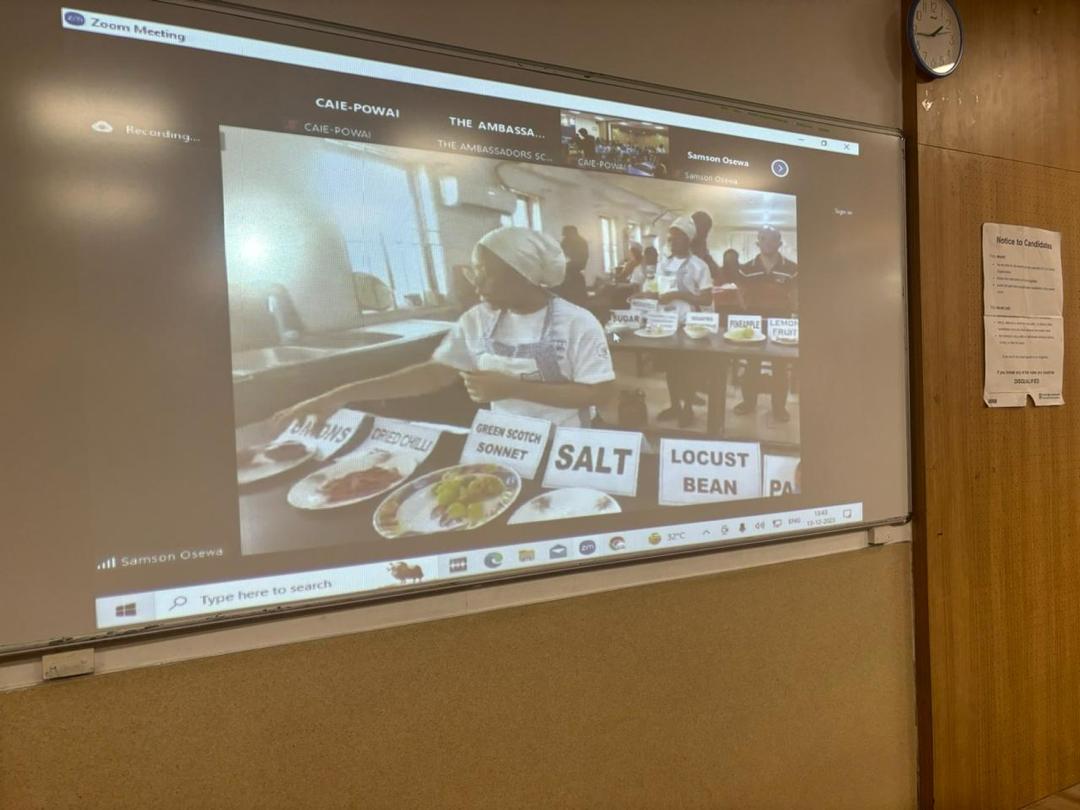
Our students sharing recipes of 3 healthy local delicacies
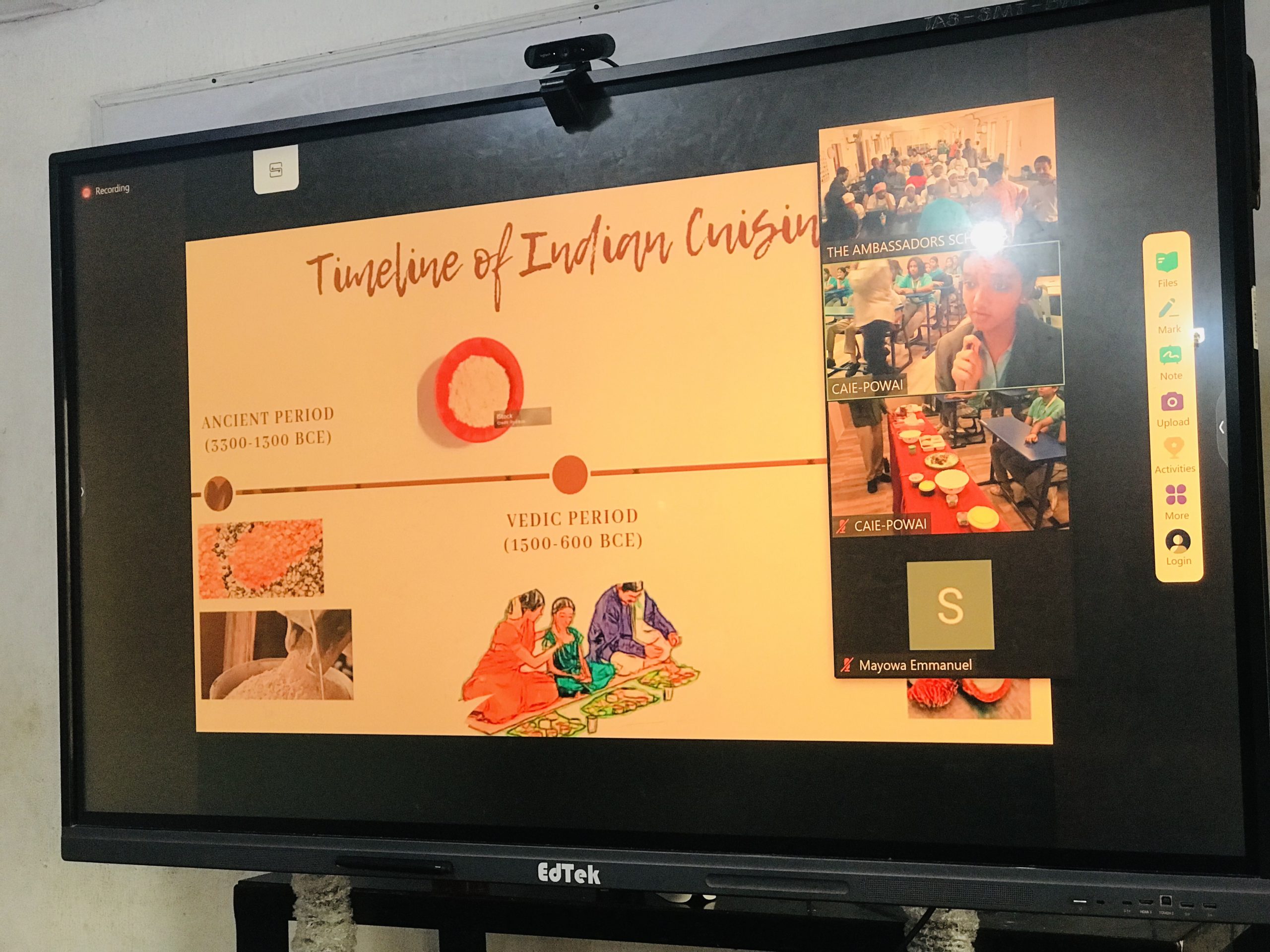
PODAR int'l school students sharing recipes of 3 healthy Indian delicacies
Activity Period: October 8, 2023 - October 30, 2023
Relevant SDG(s):
1. SDG 2 - Zero hunger - promote healthy eating habits, potentially reducing food waste, contributing to the goal of ending hunger and achieving food security.
2. SDG 3 - Good health and well-being, by promoting healthy eating habits, this project contributes to the goal of ensuring healthy lives and promoting well-being for all ages.
Subject Areas: English, Science, Biology, ICT, Food and Nutrition
Partner school: Podar International School, POWAI, India
Class: Grade 11 (ages 15-16)
Number of Students: 120
Teacher Responsible: Mrs Adewusi Tolulope, Other members of staff involved: Teachers: Mrs Soladoye Opeyemi, Mrs Funbi Femi
Activity Description:
1. Research and Exchange: Students delved into researching healthy and unhealthy food options in both Nigeria and India. Their findings were then presented to the entire student body during a school assembly, fostering knowledge sharing and peer learning.
2. Recipe Collaboration: Students explored the world of healthy Nigerian cuisine. They researched and documented recipes for three such dishes, which were then shared with our partner school, Podar International School in Powai, India. In return, the Indian students reciprocated by sending recipes for three of their healthy local delicacies. This exchange broadened students' culinary horizons and exposed them to new, healthy options.
3. World Health Day Exhibition: To commemorate World Health Day (April 7th, 2024), students put their knowledge into action. They prepared a variety of healthy meals to be exhibited within the school. Selected students took center stage, delivering presentations on the importance of healthy eating habits. This activity served as a culmination of the project's learning and a way to raise awareness among the school community
Aims:
Relevant SDG(s):
1. SDG 2 - Zero hunger - promote healthy eating habits, potentially reducing food waste, contributing to the goal of ending hunger and achieving food security.
2. SDG 3 - Good health and well-being, by promoting healthy eating habits, this project contributes to the goal of ensuring healthy lives and promoting well-being for all ages.
Subject Areas: English, Science, Biology, ICT, Food and Nutrition
Partner school: Podar International School, POWAI, India
Class: Grade 11 (ages 15-16)
Number of Students: 120
Teacher Responsible: Mrs Adewusi Tolulope, Other members of staff involved: Teachers: Mrs Soladoye Opeyemi, Mrs Funbi Femi
Activity Description:
1. Research and Exchange: Students delved into researching healthy and unhealthy food options in both Nigeria and India. Their findings were then presented to the entire student body during a school assembly, fostering knowledge sharing and peer learning.
2. Recipe Collaboration: Students explored the world of healthy Nigerian cuisine. They researched and documented recipes for three such dishes, which were then shared with our partner school, Podar International School in Powai, India. In return, the Indian students reciprocated by sending recipes for three of their healthy local delicacies. This exchange broadened students' culinary horizons and exposed them to new, healthy options.
3. World Health Day Exhibition: To commemorate World Health Day (April 7th, 2024), students put their knowledge into action. They prepared a variety of healthy meals to be exhibited within the school. Selected students took center stage, delivering presentations on the importance of healthy eating habits. This activity served as a culmination of the project's learning and a way to raise awareness among the school community
Aims:
- To equip students with the knowledge to differentiate between healthy and unhealthy food options.
- To raise awareness about the impact of food choices on their health and well-being.
Outcomes
- Students can explain the difference between healthy and unhealthy foods.
- Students can identify examples of healthy and unhealthy foods commonly consumed in Nigeria.
- Students can analyze the nutritional value and health impact of specific foods.
- Students can develop critical thinking skills by evaluating information and forming informed opinions on food choices.
Evaluation Evidence: Slide presentations, Photographs, Teacher Report, Student Report, Video
Impact:
This activity empowered students to make informed decisions about their diet. The presentations during the assembly not only educated their peers but also potentially influenced healthy choices within the school community. Additionally, the research on environmental impact sparked initial discussions about responsible food consumption, fostering a sense of environmental awareness.
Impact:
This activity empowered students to make informed decisions about their diet. The presentations during the assembly not only educated their peers but also potentially influenced healthy choices within the school community. Additionally, the research on environmental impact sparked initial discussions about responsible food consumption, fostering a sense of environmental awareness.

